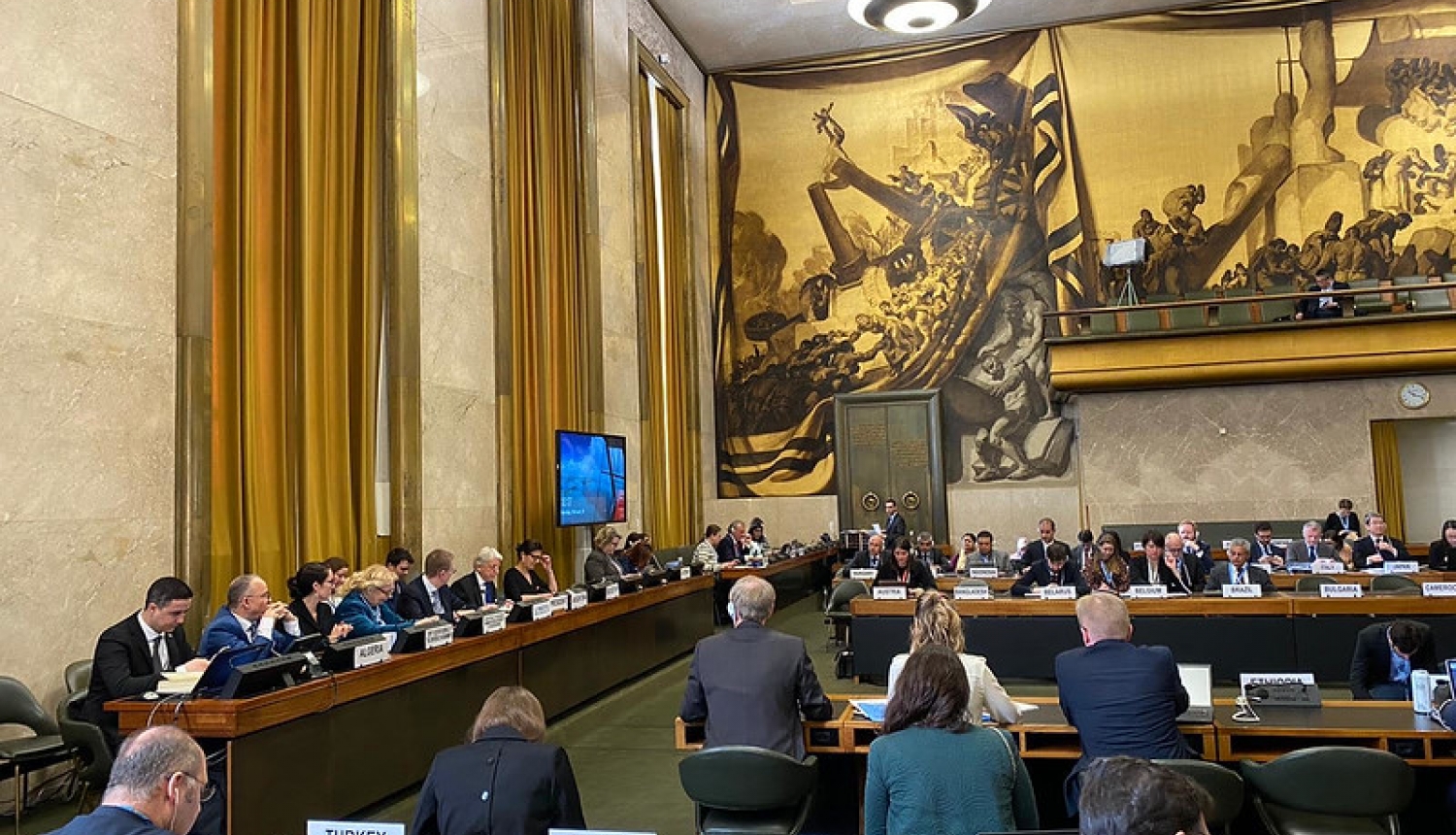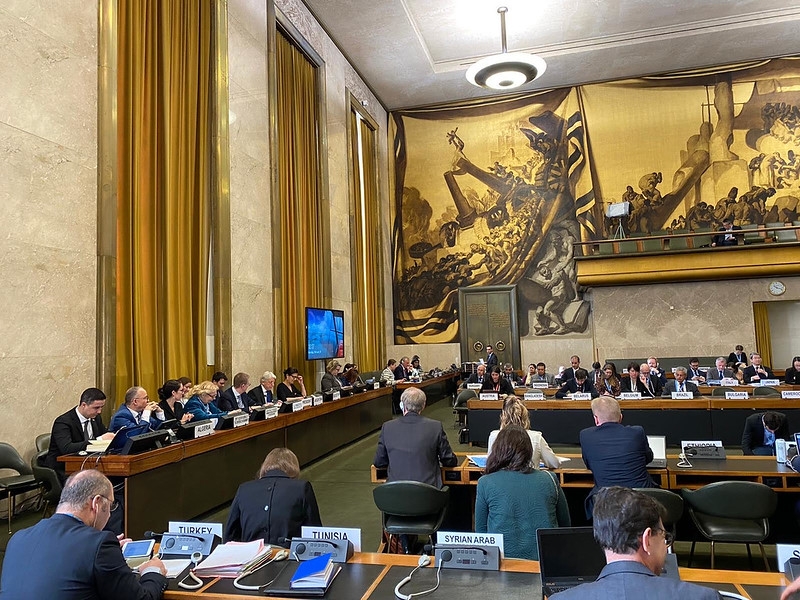On 24 February 2020, in Geneva, the Minister of Foreign Affairs of Latvia, Edgars Rinkēvičs, addressed the member states of the United Nations (UN) Conference on Disarmament. In his speech, Edgars Rinkēvičs noted that professional diplomatic efforts remain a cornerstone of the Conference on Disarmament and other disarmament fora. However, the world is witnessing a steep decline in the political will of certain states required for the effective implementation of existing norms and the development of new norms. Such a situation contributes to the weakening of the principles and foundations of the international rules-based order.
The Minister expressed the conviction that all parties need to abide by the rules, since only in this way the control over disarmament can be effective. Above all else, the effectiveness of the Conference must be renewed. To do so, it must first agree upon a substantive program of work. It is also needed for the Conference to be able to respond to all of the upcoming challenges.
Edgars Rinkēvičs called on all member states to fulfil their financial commitments concerning the Biological Weapons Convention in a timely and complete manner. “As for the Chemical Weapons Convention, it has been recently defied on a number of occasions – in Syria, Malaysia and United Kingdom. This type of behaviour, if unchecked, poses a serious threat to this important global non-proliferation and disarmament regime. No one should ever be exposed to such horrendous weapons. Therefore, we commend efforts by the Organization for the Prohibition of Chemical Weapons and its Investigation and Identification Team to ensure that those responsible for the use of chemical weapons are held accountable. It is our duty and responsibility to uphold the longstanding international norm against the use of chemical weapons,” the Minister underlined.
“The times are also changing in regards to nuclear weapons. In recent years, a number of states have embraced the idea of policy through nuclear rhetoric, involving the threat of use of nuclear weapons with increasing frequency as just another tool to further their aggressive foreign policy thereby contributing to the weakening of the international rules-based order and security.”
“This year sees the 50th anniversary of the Treaty on the Non-Proliferation of Nuclear Weapons. This Treaty is at the core of international security and stability and we must renew and increase our efforts to strengthen it, as the NPT is a cornerstone of global nuclear non-proliferation and disarmament efforts. The only credible way towards nuclear disarmament lies in a step-by-step approach that considers the wider security context. In this regard, the “building blocks” set out in the NPT Action Plan of 2010 have not lost their relevance. We also support additional efforts from a wide variety of states and groups aimed at developing practical steps conducive to progress on nuclear disarmament, such as risk reduction, verification and enhanced dialogue,” underlined Edgars Rinkēvičs in his speech.
The Latvian Foreign Minister drew attention to the need for the international community to also focus on the spread and limitation of conventional arms, which kill around 500 thousand people per year, out of which 70 thousand are killed in conflict zones.
Background information
One of the essential elements of Latvia’s foreign and security policy is responsible action in the field of arms control – non-proliferation of conventional weapons and weapons of mass destruction. It is of key importance to prevent the proliferation of weapons of mass destruction at a time when the international community is facing terrorist threat. Latvia abides by its commitments as a state party to the main agreements and regimes of conventional arms control and non-proliferation of weapons of mass destruction, and by developing and pursuing a strong policy of export control. The Conference on Disarmament is one of the main UN-related bodies dealing with disarmament matters.





